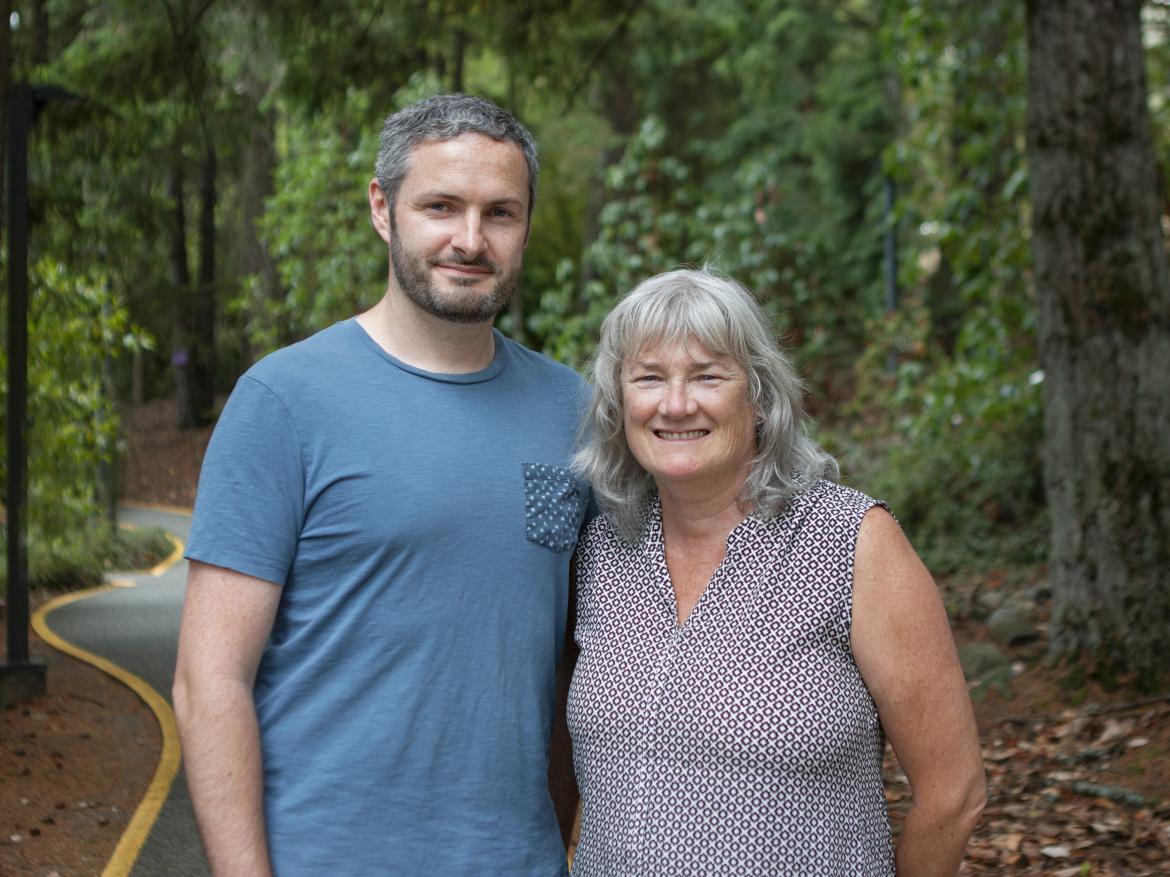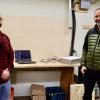
VIU’s Dr. Patrick Brouder and Dr. Suzanne de la Barre received a research grant for their project “Creative economies: exploring the nexus of culture and tourism in rural and peripheral Canada."
November 21, 2019 - 8:00am
Two Vancouver Island University (VIU) researchers are heading north to analyze a relatively new economic driver ̶̶ creative tourism and its impact on rural communities.
Two Vancouver Island University (VIU) researchers are leading a study into the role the cultural sector and creative tourism play in the sustainability of smaller, rural cities and towns in northern British Columbia and the Yukon.
“Tourism matters in rural and peripheral communities all across BC and Yukon and tourism works best when it develops in partnership with local arts and culture stakeholders,” says Dr. Patrick Brouder, the British Columbia Regional Innovation Chair for Tourism and Sustainable Rural Development at VIU.
Brouder and Dr. Suzanne de la Barre, VIU Recreation and Tourism Management Professor, have received a $65,000 Social Sciences and Humanities Research Council (SSHRC) Insight Development Grant for their project “Creative economies: exploring the nexus of culture and tourism in rural and peripheral Canada.”
Their research builds on ideas generated at the 6th International Polar Tourism Research Network (IPTRN) conference in Yukon (June 2018), which was also organized by de la Barre and Brouder. The conference focused on the cultural sectors and tourism in the Polar Regions.
Creative tourism offers visitors the chance to actively participate in arts and cultural experiences which are characteristic of the destination they are visiting. Brouder and de la Barre’s two-year project looks at how the growing creative tourism sector in northwestern Canada is embedded in new economic development and how communities respond to the growing opportunities of tourism in novel and often unexpected ways.
“Many remote BC towns have seen an increasing share of their economy move to services within the tourism-related sector,” says Brouder. “The province is arguably a national leader of tourism innovation, having almost a quarter of Destination Canada’s more than 200 Canadian Signature Experiences, the vast majority of which are rural BC innovations.”
Signature Experiences are a collection of once-in-a-lifetime travel experiences found only in Canada.
De la Barre, who has called the Yukon home for almost 30 years, observes that “the more time I spend in the territory, the more I become aware of the changes in the cultural sector and the contributions it’s making to my resident quality of life and to community well-being.”
“The city of Whitehorse, for example, has gone from a place where there was very little to do in terms of cultural activity, to a vibrant community with year-round activities and experiences. Plus, where seniors once left the territory to retire elsewhere and young people did not return after finishing their post-secondary education, now some seniors stay, and some university graduates come home. As a geographer and as a researcher I started to ask: does the cultural sector have the potential to be a solution to a range of economic and social challenges, and can creative experiences contribute to diversifying the territory’s tourism development strategies?”
Using Whitehorse (Yukon) as one case study and Prince Rupert and Terrace (BC) as the other, the project will explore challenges related to measuring the cultural industries in outlying areas to better understand the dynamics of creative development and ways of valuing different kinds of economies; how it affects economic diversification; and, ultimately, community resilience.
“The Yukon and BC cases all have strong local creative and cultural sector economies and these are now being recognized for their potential,” says Brouder.
The Insight Development Grant will make important contributions to a number of research fields including tourism, community economic development and cultural studies.
“By focusing on the cultural sector and creative tourism, we can dig much deeper into the processes of change occurring at the nexus of new mobilities and new economies in rural and peripheral Canada,” adds de la Barre.
-30-
MEDIA CONTACT:
Annette Lucas, Communications Officer, Vancouver Island University
O: 250.741.2020 | C: 250.618.7296 | E: Communications@viu.ca
Tags: community | Research | Tourism | Research






